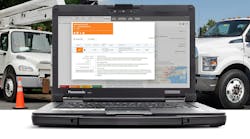It’s always a thrill to discover that someone actually reads what you write. So I was happy to see comments on my recent blog on autonomous trucks. And I want to offer some additional thoughts on the subject.
Innovation stems in part from an almost absolute faith that anything is possible. Engineered products for commercial use owe their origins to this faith. As do most other amazing things that get developed. If we didn’t have people who thought the impossible was possible new things would never get invented.
Engineered products are the result of a wide range of influences and decisions, and very often are refined through a process of iteration, real-world experience and formal testing. Tesla makes a remarkable product, and Elon Musk is a phenomenal power behind innovation. The product design iterations taken by Tesla after the Florida incident are an example of this iterative process.
Tesla prudently included additional sensors and revised software based on analysis of the event, and introduced this to their product line. As they state on their website (www.tesla.com/autopilot), “Eight surround cameras provide 360 degrees of visibility around the car at up to 250 meters of range. Twelve updated ultrasonic sensors complement this vision, allowing for detection of both hard and soft objects at nearly twice the distance of the prior system. A forward-facing radar with enhanced processing provides additional data about the world on a redundant wavelength that is able to see through heavy rain, fog, dust and even the car ahead.”
It’s important to remember that we’re at the beginning of the technology innovation phase of autonomous vehicles. Products designed this year will be obsolete in time, replaced by more capable systems designed in part based on feedback from actual on-road use.
Absolute faith in technology is a strength of innovators. Humility is a strength of engineers — recognizing that the world is complex and that every decision, every design choice, every specification, creates a set of limitations on the product. While in a perfect world, a technology may have ideal capability, the implementation of that product involves choices and realities. In the perfect world, electronics never fail. Systems work 100% of the time. Designers have predicted all of the potential events. Commercial products are not so blessed.
The reality is that products have warranties and companies have service groups because there’s risk involved with engineering anything. Products do not last forever. They don’t always operate as intended. Users don’t always use them as intended.
Autonomous vehicles will evolve. The traffic environment will evolve. People will adapt to both. Safety will improve.
There is no destination in the path forward on autonomous vehicles, only continuous improvement and innovation — the very engines that have brought us to this debate. Industry and customers will recognize benefits and limitations at each iteration, and continually move toward better systems.
I, for one, can’t wait to see what develops next.


